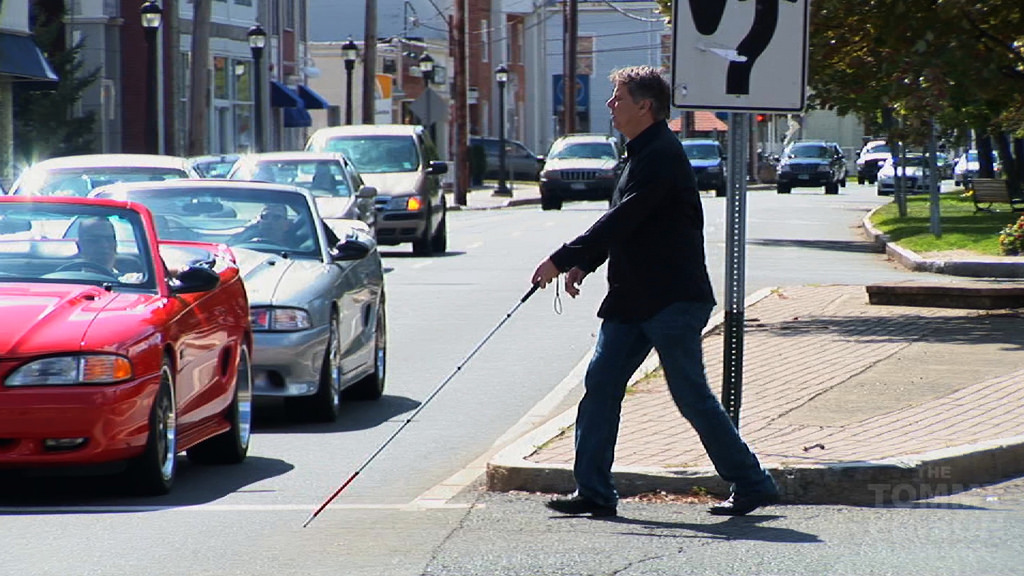The brain adapts to survive: How do people with poor eyesight develop better hearing?
10/14/2019 / By Darnel Fernandez

Scientific studies and anecdotal evidence suggests that people who are born blind or become blind early in life often develop a sharper sense of hearing. For decades, scientists have wondered what changes happen in the brain that contributes to superior hearing in the blind. Now, a recent study has managed to pinpoint what exactly makes this possible.
A study published in The Journal of Neuroscience found that there are two differences in the brains of blind individuals that may be responsible for their superior hearing. This study is one of the first to investigate and provide evidence of the effects of early blindness on the auditory cortex area of the brain.
“There’s this idea that blind people are good at auditory tasks because they have to make their way in the world without visual information. We wanted to explore how this happens in the brain,” said senior author Ione Fine in a statement.
An eye-opening find
Previous studies have already established that the brain adapts to sensory deprivation and essentially “rewires” itself to enhance the fully functional senses. Instead of looking at the parts of the brain active during listening, researchers from the University of Washington (UW) and the University of Oxford studied the sensitivity of the brain to differences in audio frequency.
“We weren’t measuring how rapidly neurons fire, but rather how accurately populations of neurons represent information about sound,” said lead author Kelly Chang, a graduate student in UW’s psychology department.
The team analyzed individuals with early blindness, with some of them having anophthalmia – a condition in which both eyes fail to develop – and compared them with a fully sighted control group. The researchers then conducted MRI scans of the participants’ brains as they processed pure tones and analyzed what happens in their auditory cortices – the part of the brain concerned with hearing.

The scans revealed that the auditory cortices of blind individuals adapt to process sound differently to make up for the loss of sight. These individuals were able to capture finely tuned frequencies better than sighted individuals.
“This is the first study to show that blindness results in plasticity in the auditory cortex. This is important because this is an area of the brain that receives very similar auditory information in blind and sighted individuals,” Fine said.
“You see with your eyes, I see with my ears.”
Another study, published in the Proceedings of the National Academy of Sciences, also examined the effects of early visual deprivation on auditory cues, specifically on auditory motion processing. Similar to the previous study, participants were asked to listen to pure tones that differed in audio frequency. However, the tones now sounded like they were in motion.
Their analysis revealed that a blind individual’s hMT+ region — which is responsible for tracking moving objects — contained information about the direction the sound is moving, a factor not present in sighted participants. This suggests that early blindness results in visual areas of the brain being recruited to solve auditory tasks.
The study also included individuals who have regained their eyesight via surgery in adulthood. The researchers found that their area hMT+ was capable of processing both auditory and visual motion.
This suggests that adaptation in the brain happens early in development because their early blindness shifted their brain towards auditory processing but retained this ability after their sight was restored. (Related: Blind mice recover visual response using protein from green algae.)
The researchers note that the findings of both studies add to the current knowledge about brain development and to the understanding of how blind people make sense of the world.
Read BrainFunction.news for more reporting on neurology and brain function.
Sources include:
Submit a correction >>
Tagged Under:
adaptation, anophthalmia, area hMT+, auditory cortex, auditory motion, blindness, brain function, early-life blindness, hearing, neurology, plasticity, research, visual motion
This article may contain statements that reflect the opinion of the author





















